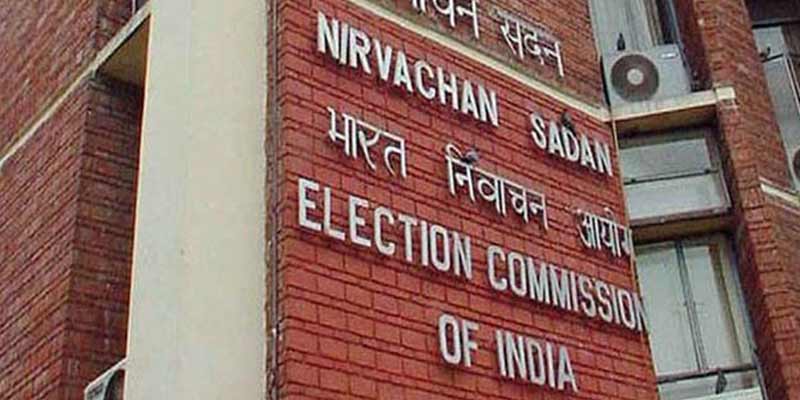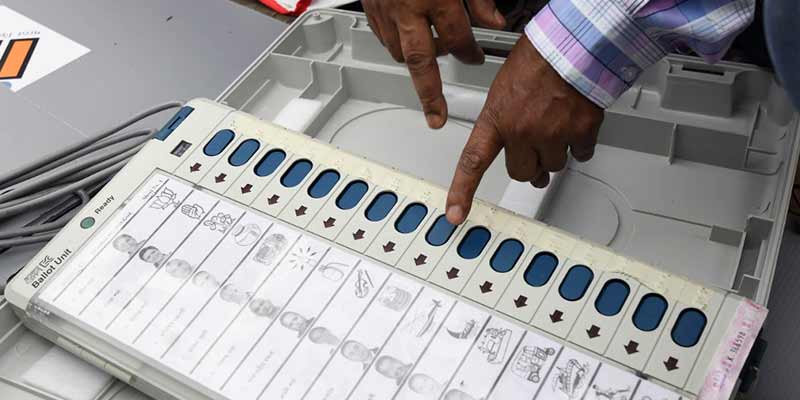- India
- Nov 25
Explainer / Appointment of election commissioner
• The Supreme Court questioned the haste and tearing hurry with which the Centre appointed ex-bureaucrat Arun Goel as an election commissioner, saying his file travelled at “lightning speed” within departments in 24-hours.
• The central government vehemently resisted the observations, with Attorney General R. Venkataramani contending the whole issue pertaining to his appointment needed to be looked at in entirety.
• The apex court was hearing a batch of pleas seeking a collegium-like system for the appointment of Election Commissioners (ECs) and the Chief Election Commissioner (CEC).
• The SC bench said the independence of the institution should be ensured at the threshold for which the appointment should be scanned at the entry level.
• On November 19, President Droupadi Murmu appointed Arun Goel as election commissioner.
• There was a vacancy in the Election Commission (EC) following the retirement of previous CEC Sushil Chandra in May.
• Goel was the secretary in the ministry of heavy industries till recently and his voluntary retirement came into effect on November 18. He has also served in the Union culture ministry.
• Goel would be in line to be the next CEC after incumbent Rajiv Kumar demits office in February 2025. His total tenure in the Election Commission would be of over five years.
• On November 23, Goel’s appointment as an election commissioner came under scrutiny by the Supreme Court which had sought from the Centre the original records pertaining to his appointment for perusal, saying it wanted to know whether there was any “hanky-panky”.
• The top court, which had rejected the Centre’s objections to its order for producing the original file, had said it wanted to know whether everything was “hunky dory” in the appointment process as claimed by the government.
Election Commission of India
• The Election Commission of India (EC) is a permanent independent constitutional body created under Article 324 of the Indian Constitution.
• The EC was set up on January 25, 1950, on the eve of India becoming a sovereign democratic republic with its headquarters in New Delhi.
• EC is vested with the powers and responsibilities of superintendence, direction and control of the entire process of preparation and revision of electoral rolls for, and conduct of, elections to the houses of Parliament and Legislatures of the states and the Union Territories and of elections to the offices of President and Vice-President.
• Elections are conducted according to the constitutional provisions, supplemented by laws made by Parliament and rules and orders made thereunder. The major laws are:
• The Presidential and Vice-Presidential Elections Act, 1952.
• The Representation of the People Act, 1950.
• The Representation of the People Act, 1951.
• EC prepares, maintains and periodically updates (new registration, modification and deletion as per guidelines) the electoral rolls, registers political parties/candidates, supervises the whole process of conducting election, monitors the election campaigns, including funding and expenditure of candidates, maintaining Model Code of Conduct (MCC) to make the entire electoral process free fair democratic and accessible for all its stakeholders.
• It also facilitates coverage of the election process by the media, carries out the voter education and awareness measures, organises the polling stations/ booths where voting takes place, and oversees under stringent surveillance mechanisms the counting of votes and the declaration of results.
• All political parties are required to get themselves registered with the Election Commission. Based on performance criteria laid down in the Election Symbols (Reservation & Allotment) Order 1968, the EC grants recognition to political parties as national or state parties. It also decides disputes relating to splits/mergers of recognised political parties.
• At the state level, the election work is supervised, subject to overall superintendence, direction and control of the Commission, by the Chief Electoral Officer of the State, who is appointed by the Commission from amongst senior civil servants proposed by the concerned state government. He is, in most of the States, a full time officer and has a small team of supporting staff.
• At the district and constituency level, officers and staff of the civil administration double up as election officials. During actual conduct of elections, a vast number of additional staff are temporarily drafted for about two weeks. They function mainly as polling and counting officials.
Election Commissioners
• The first Chief Election Commissioner (Sukumar Sen) was appointed on March 21, 1950.
• Originally, the commission had only a Chief Election Commissioner. It currently consists of the Chief Election Commissioner and two Election Commissioners.
• The concept of multi-member Commission has been in operation since 1993, with decision making power by majority vote.
• The President appoints Chief Election Commissioner and Election Commissioners.
• They have tenure of six years, or up to the age of 65 years, whichever is earlier.
• They enjoy the same status and receive salary and perks as available to judges of the Supreme Court of India.
• The Chief Election Commissioner can be removed from office only through impeachment by Parliament.
• The Chief Election Commissioner or an election commissioner may, at any time, by writing under his hand addressed to the President, resign his office.
• The President, after consultation with the Election Commission, may also appoint regional commissioners to assist the Election Commission in the performance of the functions.
Powers and functions of EC can be summarised as:
• Determine the territorial areas of the electoral constituencies throughout the country on the basis of the Delimitation Commission Act of Parliament.
• Prepare and periodically revise electoral rolls and to register all eligible voters.
• Notify the dates and schedules of elections and to scrutinize nomination papers.
• Grant recognition to political parties and allot election symbols to them.
• Act as a court for settling disputes related to granting of recognition to political parties and allotment of election symbols to them.
• Appoint officers for inquiring into disputes relating to electoral arrangements.
• Determine the code of conduct to be observed by the parties and the candidates at the time of elections.
• Prepare a roster for publicity of the policies of the political parties on radio and TV in times of elections.
• Advise the President on matters relating to the disqualifications of the members of Parliament.
• Advise the governor on matters relating to the disqualifications of the members of the state legislature.
• Cancel voting in the event of rigging, booth capturing, violence and other irregularities.
• Supervise the machinery of elections throughout the country to ensure free and fair elections.
Manorama Yearbook app is now available on Google Play Store and iOS App Store


